Just In
- 4 hrs ago

- 14 hrs ago

- 15 hrs ago

- 19 hrs ago

Don't Miss
- Sports
 ONE Friday Fights 60: Start Time, Card, Telecast & Live Streaming Details
ONE Friday Fights 60: Start Time, Card, Telecast & Live Streaming Details - Education
 The TS Inter Manabadi Results 2024 will be Announced at 11:00 a.m. Today
The TS Inter Manabadi Results 2024 will be Announced at 11:00 a.m. Today - Movies
 Aadujeevitham Box Office Collection Day 28 Prediction: Prithviraj's Movie's Declining Trend Continues
Aadujeevitham Box Office Collection Day 28 Prediction: Prithviraj's Movie's Declining Trend Continues - News
 EVMs-VVPAT Slips 100% Matching Plea: Supreme Court To Pronounce Verdict Today
EVMs-VVPAT Slips 100% Matching Plea: Supreme Court To Pronounce Verdict Today - Finance
 Trade Setup: Mixed Results From HDFC Bank, RIL Stall Nifty Momentum; Global Economic Data In Focus
Trade Setup: Mixed Results From HDFC Bank, RIL Stall Nifty Momentum; Global Economic Data In Focus - Technology
 Vivo T3x 5G Goes on Sale in India at 12 noon Today via Flipkart: Check Price, Specs, Offers
Vivo T3x 5G Goes on Sale in India at 12 noon Today via Flipkart: Check Price, Specs, Offers - Automobiles
 Hero Lectro Introduces Muv-e Electric Bike To Transform Delivery Services
Hero Lectro Introduces Muv-e Electric Bike To Transform Delivery Services - Travel
Kurnool's Hidden Gems: A Guide To Exploring India's Lesser-Known Treasures
Vitamin B1 Rich Indian Foods & Their Benefits

Did you know that vitamin B plays a key role in maintaining cell health and keeping you energized? Not all types of vitamin B perform the same function, additionally the different types of vitamin B come from different types of foods.
Vitamin B1, which is also referred to as thiamine, is a co-enzyme used by the body to metabolise food for energy and maintain heart health and nerve function.
Thiamine is also used in combination with other B vitamins, which make up the B-vitamin complex to manage the important functions of the cardiovascular system, endocrine system and digestive system.
If there is not enough thiamine in the body, the molecules found in proteins and carbohydrates cannot be properly used by the body to carry out various important functions.
So, if you have a thiamine deficiency, you may suffer from chronic fatigue, heart complications, weakness and nerve damage, etc. Therefore, it is necessary that you get enough of vitamin B1 in your body.
Read on to know about the 13 benefits of thiamine or vitamin B1-rich Indian foods.
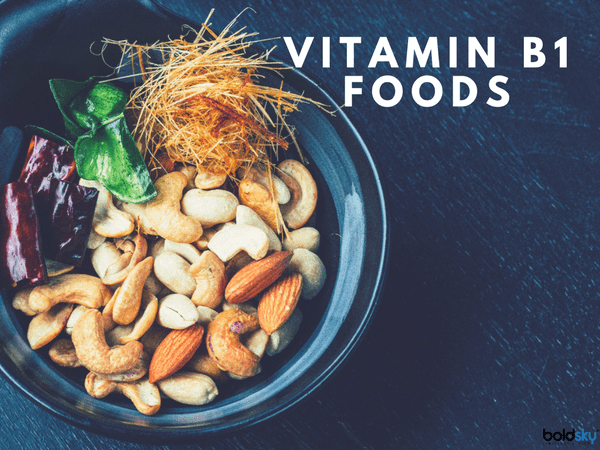
1. Nuts
Nuts are nutrient dense foods and contain vitamin B1. Nuts like pistachios, brazil nuts, pecans and cashew nuts are one of the good sources of vitamin B1. So, give up those unhealthy processed snacks and start munching on nuts to boost your vitamin B1.
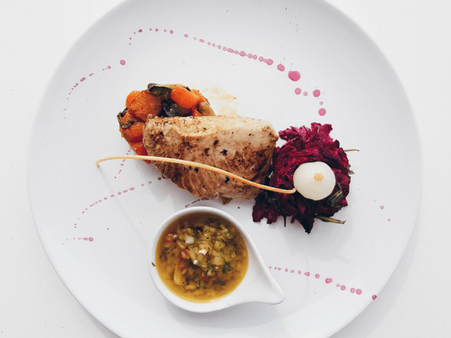
2. Fish
Fish is rich in omega-3 fatty acids and are also a very good source of thiamine or vitamin B1. Tuna fish contains the highest levels of vitamin B1, contributing more than 35 percent of the daily requirement. Salmon and mackerel fish provide 19 percent and 9 percent of vitamin B1, respectively.
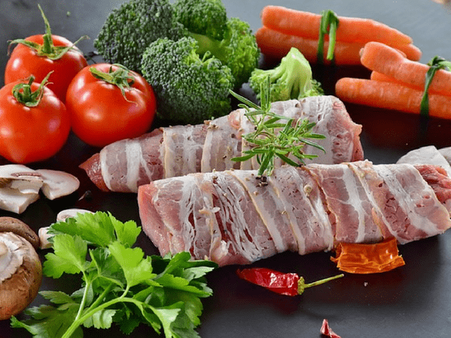
3. Lean Pork
Lean pork is a non-vegetarian source of vitamin B1. In a 100 grams of serving, it provides 74 percent of the daily requirement of vitamin B1. Lean pork loin, lean pork tenderloin, and lean pork chops all have significant amounts of thiamine.
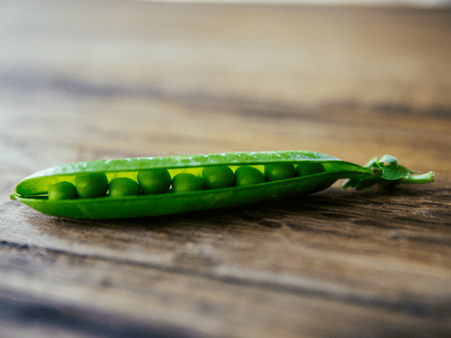
4. Green Peas
If you love eating green peas, then you will be amazed to know that they provide good sources of vitamin B1. Frozen green peas provide 19 percent of vitamin B1 in a 100 grams of serving. Fresh green peas will provide you with 28 percent of the daily requirement of vitamin B1.

5. Squash
Squash is a good source of vitamin B1 and acorn squash is the best source of vitamin B1, providing 11 percent in a 100 grams of serving. Other varieties of squash also have vitamin B1 - like butternut squash that will provide you with 10 percent of thiamine.
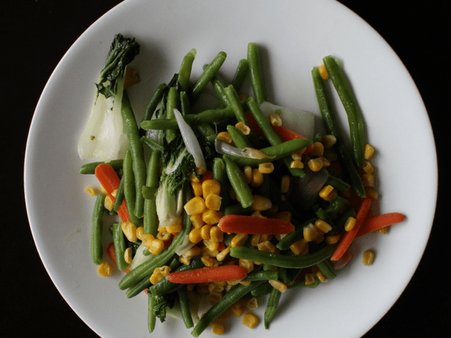
6. Beans
Almost all varieties of beans, including green beans, black beans contain high levels of vitamin B1 as well as heart-healthy proteins. You can boil beans and add them in your salads and soups to get the most of this vitamin.
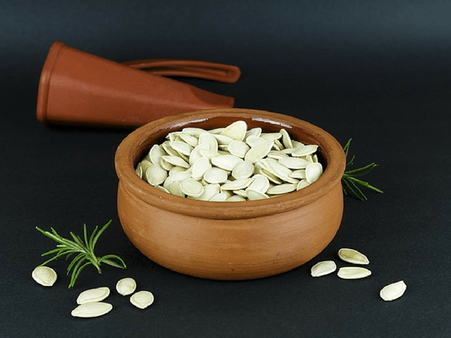
7. Seeds
There are various kinds of seeds that are good sources of vitamin B1. For instance, sunflower seeds have the highest concentration of vitamin B1 with 99 percent in a 100 grams of serving. Sesame seeds contain 80 percent of vitamin B1 and other seeds like chia seeds and pumpkin seeds are rich in thiamine too.

8. Asparagus
Asparagus is a good source of vitamin B1. Cooked asparagus provides 11 percent of thiamine in a 100 grams of serving. Canned and frozen asparagus contains low amounts of this vitamin, so it's better you use the fresh ones.

9. Bread
Bread made from wheat flour contains significant amounts of vitamin B1. A single slice of bread contains 9 percent of vitamin B1. Other varieties of bread that are good sources of thiamine are wheat bagel, muffins and rye bread.
Thiamine
or
vitamin
B1
also
has
several
benefits.
Have
a
look.

10. Maintains A Healthy Metabolism
Thiamine helps in converting carbohydrates into glucose, which is a preferred source of energy that the body uses. It also helps in breaking down proteins and fats, thus boosting up your energy and metabolism.

11. Prevents Nerve Damage
Thiamine prevents nerve and brain damage. It brings out the fuel from the food and takes it to the nervous system, thereby maintaining a proper brain and nerve system. Vitamin B1 will further lower the risk of a nerve damage.

12. Healthy Heart
Thiamine helps in fighting off cardiovascular diseases and keeps the heart healthy. Studies have shown that thiamine can be useful in fighting heart disease because it helps to maintain healthy ventricular function and treats heart failure.
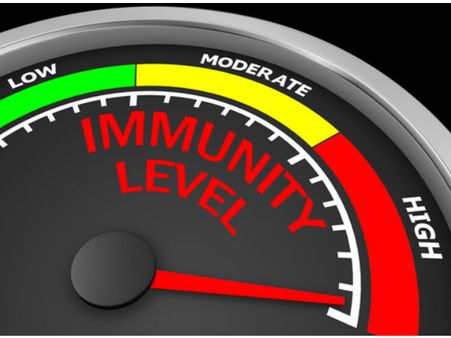
13. Boosts Immunity
The digestive health is important for thiamine absorption because a healthy digestive tract allows your body to extract nutrients from the food better, which is used to strengthen your immunity. Vitamin B1 also helps to prevent sickness from various infections.
Share this article!
If you liked reading this article, share it with your close ones.
12 Home Remedies For Mosquito Bites To Bring Instant Relief
-
 healthWhy Are Dopamine Boosting Foods Good For Your Overall Health? Check This List To Add It Naturally To Your Diet
healthWhy Are Dopamine Boosting Foods Good For Your Overall Health? Check This List To Add It Naturally To Your Diet -
 healthKeep Your Cooking Method Under Check Because These 9 Foods Lose Their Nutrition When Overcooked
healthKeep Your Cooking Method Under Check Because These 9 Foods Lose Their Nutrition When Overcooked -
 healthIf You Are Consuming These Foods, You Are Unknowingly Following An Anti Pollution Diet
healthIf You Are Consuming These Foods, You Are Unknowingly Following An Anti Pollution Diet -
 healthIndigenous Delicacies: 5 Rare Indian Wild Foods That Are So Healthy You Should Try It!
healthIndigenous Delicacies: 5 Rare Indian Wild Foods That Are So Healthy You Should Try It! -
 wellness5 Asthma-Friendly Foods: Breathe Easy With These Foods For Better Lung Health
wellness5 Asthma-Friendly Foods: Breathe Easy With These Foods For Better Lung Health -
 healthHeart-Healthy Tips For Garba: Foods To Avoid And Tips For Safe Celebrations
healthHeart-Healthy Tips For Garba: Foods To Avoid And Tips For Safe Celebrations -
 insyncMan Creates World’s Hottest Chilli Pepper, Pepper X: How Does It Feel To Eat It?
insyncMan Creates World’s Hottest Chilli Pepper, Pepper X: How Does It Feel To Eat It? -
 healthCan Eating These Foods Trigger Tumour Growth?
healthCan Eating These Foods Trigger Tumour Growth? -
 healthChew These 4 Foods For A Defined Jawline
healthChew These 4 Foods For A Defined Jawline -
 wellnessWorld Anaesthesia Day 2023: Foods With Anaesthesia-Like Properties
wellnessWorld Anaesthesia Day 2023: Foods With Anaesthesia-Like Properties -
 healthWorld Cancer Day 2024: Exploring Anti-Cancer Properties Of Indian Herbs And Spices Which Are Natural Healers
healthWorld Cancer Day 2024: Exploring Anti-Cancer Properties Of Indian Herbs And Spices Which Are Natural Healers -
 wellnessFoods You Can Eat When You Have Diarrhoea (Loose Motion)
wellnessFoods You Can Eat When You Have Diarrhoea (Loose Motion)


 Click it and Unblock the Notifications
Click it and Unblock the Notifications



